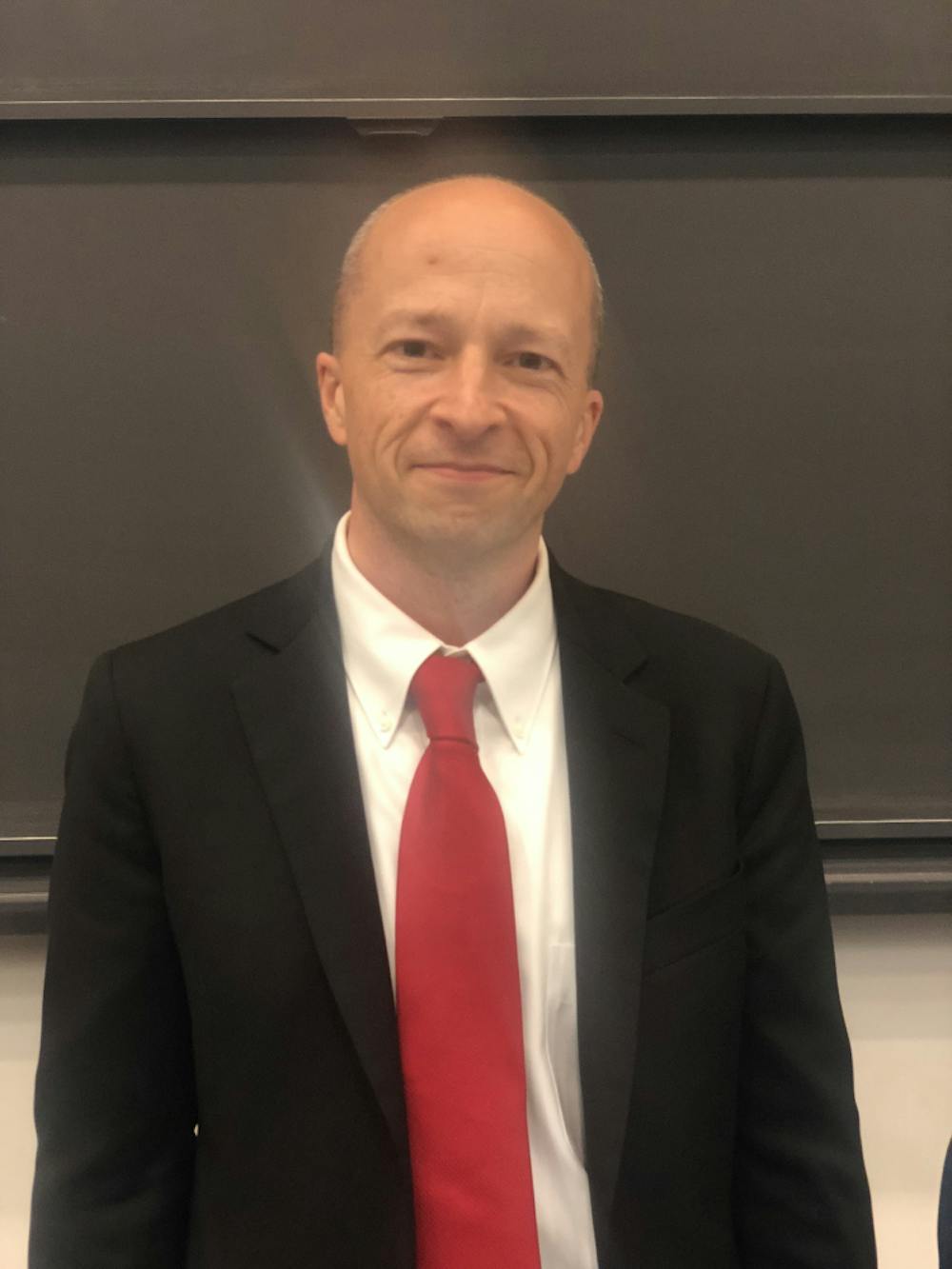We know that we are losing social capital, but don't know how to replenish it, said Yuval Levin, Hertog Fellow at the Ethics and Public Policy Center and editor of National Affairs. “Institutions are part of an answer to that question, but the crisis that we face is that we have been loosing the knack for treating our institutions as formative. In this way, we’ve come instead to treat them as performative, as platforms, stages for us to perform on.”
Levin has been a member of the White House domestic policy staff as well as the Executive Director of the President’s Council on Bioethics under president George W. Bush.
“It is an essential reason for our loss of faith, our loss of trusts in many of our key institutions. And for the loss of form and structure in our life together that has left so many Americans feeling isolated or alienated in this moment in our society.”
The rise of a performative understanding of institutions and the decline of the idea of the formative institution can offer us a lens into the evolution of some key facets of society, he said.
Levin went on to examine the problem through four main lenses: the federal government, the university, journalism, and family.
“This institutional decay has been evident first and foremost in Congress,” said Levin. “A lot of members of Congress have come to view the institution as a kind of platform for themselves, a way to raise their profiles, to become celebrities in the world of cable news or talk radio, in essence to perform. What is lost in the process of that is the ability to legislate or compromise.”
Levin found a similar decay in the presidency, explaining that President Trump’s ambition seems like a desire to put himself at the center of our national consciousness and attention. He pointed out that the judicial system is also not immune to this ambition.
“A meaningful portion of the problem we tend to describe as judicial activism is actually also a form of this broader transformation of attitude by which some judges have come to think of the bench as a stage and by their work as moralistic performance,” he said.

This focus on the self becomes a particularly acute problem in professions where integrity is most essential, such as journalism. Levin cited low levels of reported trust in journalism, especially among populists who use the press to “stand in for the establishment that they detest.”
“[Populists] put fake news at the heart of their description of the social order that they reject,” he said.
According to Levin, this lack of trust is a particular problem for journalism because trust is journalism’s currency.
Levin, however, also notes that the press is not free from blame for the lack of trust.

“An important reason for the decline of trust in the press is the failure of many journalists to treat their profession itself as a formative of institution and an inclination instead to treat it as another platform for themselves,” he said.
Levin broke the university down into three main purposes: professional development, moral activism, and liberal education.
In today’s America, Levin sees the moral activism aspect of the university as “increasingly not educative, but coercive.”
This integration of politics in traditionally non-political aspects of life has resulted in a “flattening of the topography of social life.”
“Every institution is becoming an arena for the same kind of combat,” he said.
According to Levin, the family unit is also affected. He emphasized that the current social crisis “that is facing our society begins there.”
The family has come to be used as a platform for political activism, according to Levin.
Such deterioration of key institutions suggests that people have either forgotten or ignored the purpose and necessity of institutions. A solution, Levin suggests, would be to first approach institutions differently.
“It is a problem we can start to address by approaching the institutions around us with a different frame of mind,” he said.
The lecture took place at 4:30 p.m. on May 1. It was the second of three lectures by Dr. Yuval Levin sponsored by the James Madison Program in American Ideals and Institutions.








